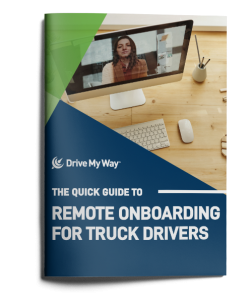.jpg)
Organizations across the country are rethinking their hiring and retention strategies for truck drivers. They are revamping benefit programs. Companies are making sure their compensation is competitive in the market. Fleets are putting bonus and incentive programs in place.
But what about taking a closer look at the relationship between dispatchers and drivers?
Truckers report that their relationship with their assigned dispatcher greatly contributes to their level of satisfaction with their job and with the trucking company. As an employer, here are some tips to keep in mind when evaluating dispatchers.
Train Dispatchers in the Trucking Industry
Some truck drivers are paired with a dispatcher who lacks industry experience and a clear understanding of the work. If the dispatcher and driver aren’t on the same page, there will be a disconnect, frustration, and oftentimes, quick turnover.
Some companies hire dispatchers who lack industry experience but know how to operate complicated dispatch software—allowing the company to pay them lower wages due to the level of experience.
Instead of throwing them to the wolves, companies need to make sure the dispatcher is fully trained before working with truckers. The dispatcher needs to get to know the drivers, understand the work, and feel confident about the industry before jumping in.
Ensure Dispatchers Are Honest with Their Drivers
Dispatchers with a lack of industry experience sometimes make claims to truck drivers that stretch the truth. Some of these statements could include:
- I’ll definitely get you home this weekend
- Your load will be waiting for you when you get back
- You have plenty of time to make this delivery
It is the company’s responsibility to monitor these conversations in order to quickly correct false statements and ensure a good-standing relationship between the dispatcher and driver. The dispatcher is oftentimes the driver’s main point of contact at the organization, so if the dispatcher isn’t being truthful, the company will quickly earn a bad reputation.
Encourage Dispatchers to Share Driver Feedback
If a driver shares unsatisfied feedback with a dispatcher regarding their job, it is the dispatcher’s responsibility to share that feedback with the organization.
To encourage this, companies need to have frequent conversations with dispatchers to ensure they have a current pulse on driver satisfaction and areas of improvement.
This will reduce drivers feeling unheard and will improve communication across the organization as a whole. In turn, dispatchers can also share areas of improvement for drivers, and this can be used for driver incentive programs.
Overall, companies need to consistently evaluate the quality of their dispatchers. The relationships between drivers and dispatchers should be consistently evaluated and improved.






